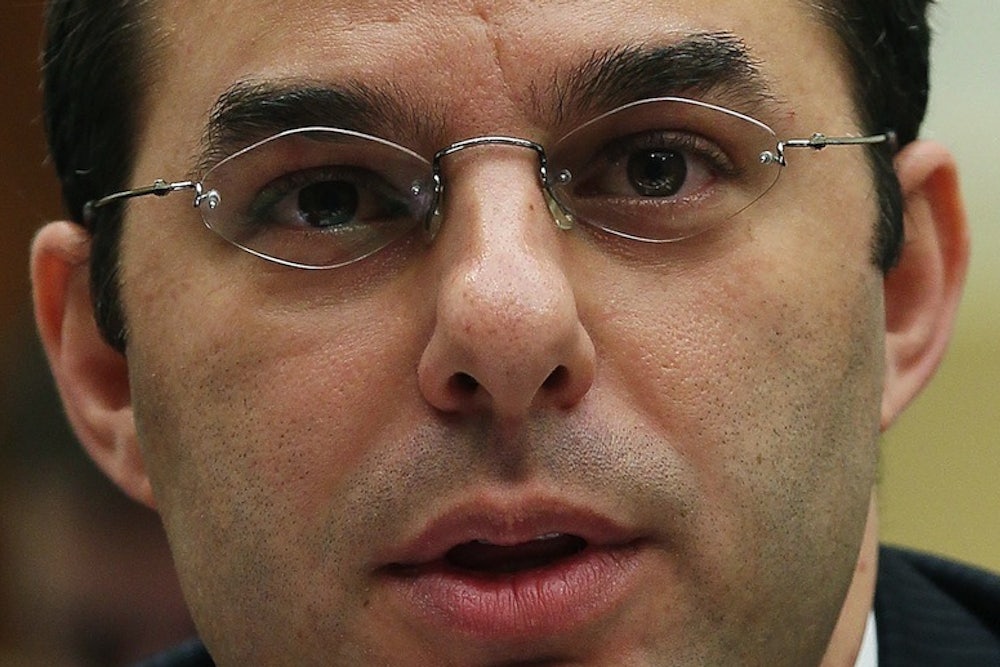In Michigan’s third congressional district, barbs are flying between Tea Partier Justin Amash and primary challenger Brian Ellis over an unexpected issue: the Keystone XL pipeline. Ellis is haranguing Amash for voting “present” on a bill to authorize the pipeline in May—and for being the only U.S. House Republican to do so. (Amash contends that he supports the pipeline, but it’s against his M.O. to vote for legislation that singles out a single company—be it green-lighting the Keystone project on behalf of energy giant TransCanada or defunding Planned Parenthood to limit abortions—even if he agrees with it on principle.) But Ellis may have chosen the wrong witch hunt, because outside the cloisters of Washington, D.C., opposition to the Keystone pipeline—and views on sustainable policy in general—fall less and less along party lines.
This was apparent at an event The New Republic hosted with the Center for American Progress on Thursday morning, where New Republic editor Frank Foer talked brass tacks of climate change with two Republican mayors who have remade their cities around sustainable ideals. “It was key that [the planning process] was about everybody, about the community, about what do we want,” said Bob Dixson, the mayor of Greensburg, Kansas. “And again and again, we heard: environment, water... Those were the values of a rural community that’s conceived as being very red.” Dixson and Jim Brainard, the mayor of Carmel, Indiana, were open about their certainty that humans are causing climate change. “I don’t think we should shrink from the fact that we have good science, and we need to pay attention to it,” Brainard said. “These are things that should transcend party lines.”
Opinions on Keystone have done just that, especially in communities who would have the pipeline under their feet. Activists in Texas found an unlikely leader in former Republican gubernatorial candidate Debra Medina, and the movement is rooted in the state’s traditionally conservative farming community, whose members have waged upwards of 80 eminent domain fights to keep the pipeline from truncating their properties. A kindred group of Montana landowners also formed a group to advocate against the pipeline.
The national GOP still treats Keystone like a do or die issue. In 2011, the governors of Nebraska and South Dakota expressed discomfort with allowing the pipe to run through their states, but by 2012 both had fallen into line. This is undoubtedly what Ellis is banking on as he tries to leverage even a small deviation from Keystone orthodoxy against Amash. But at the local level, and among voters, opinions are far from black and white—or red and blue.
